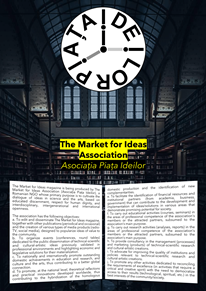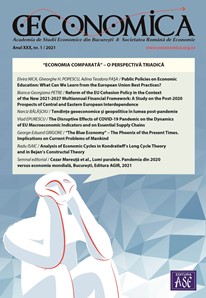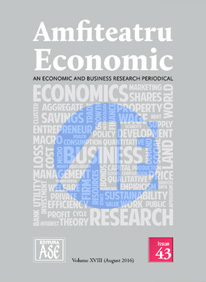
Those Old, Outdated Symbols
Z was walking down the path to the old, ragged buildings he had visited some time ago. He was eager to show his friend the intriguing site. The weird old gate and the crumbling edifices always held some fascination for him. He was anxious every time he was there, but he did not understand why. So, instinctively, he felt he wanted to see if his friend might have the same reaction.
The sun was shining that day, but it was not as humid and hot as it usually was. They could walk in the sun without having to stop for water too often. The river was no longer close to them while they kept to the path.
As they approached the great arched gate, Z’s friend looked up at the weirdly shaped metal towering over their heads. It seemed peculiar to him, and had he been alone he would have stopped to inspect it better, but he kept walking to keep up with his friend. When they reached the spot which always made him fearful, a broken-down building with a small door on it and smooth, dark, dirty walls, Z grunted and pointed to show his friend that they should go inside. At first J was reticent. It was dark and he did not like it. But Z pulled him in and took him to an ugly looking room. He tried to show J that he should put his hand on the wall. Z was curious to see if his friend felt the same about the place. J, taking a while to understand the directions, grunted back and did as Z showed. But he looked confused, not scared as Z had predicted, and he was eager to get out. Z was displeased and grunted a few more times before he realized that it was hopeless.
After this, they walked about the place a bit, curious about everything, grunting back and forth. Then they chose a shaded spot and rested. It was late in the afternoon and the journey was too long to head back now. As they sat in the shade of the old brick structures, no thought crossed their minds, only feelings. They felt warm, so the shade was a good choice. They looked up the road, beyond the gate, and saw another group of people, so they felt weary. They did not know those people. And their clothes looked unfamiliar. Perhaps they were dangerous. Z and J waited a bit until the others were further in the distance and they could no longer hear their grunts, then they pushed closed the rusty old gate they had passed through earlier, to make sure they were safe. When night came, they felt cold, so they made a small fire with some weirdly thin material they had used before but whose value they did not understand. After that they felt hungry, so they caught a rat. Then they were sleepy, so they slept.
The “material” they used for the fire was a book about survivors of some of history’s worst ordeals. They had burned many books before, all collections of human experience and memory, without knowing what their worth might have been had they been able to read them. You see Z and J could not read. In fact, they could not even speak. They were brought up in a world of oblivion, a world in which language, that final battle ground between the ruling power’s propaganda and the people’s desire for free thought, had eventually been reduced to nothing.
It all started when some words became unacceptable and were seen as bearing the shame and malice of their development’s history. Soon, those calling for the abolition of words and their meanings controlled everything. Some dissenters complained that it was like living in one of those works of dystopian fiction which were still freely circulating at that time. They spoke of Orwellian realities and newspeak endeavors. But not many people paid attention to what seemed like exaggerated grievances. The few who did, eventually had no power left to change anything, for they were not numerous, and they were old. The new movement’s power laid in its youth. Fresh, young faces and half empty minds, eagerly following the principles of their coalition’s indoctrination, discarding and despising the old, were given full control. New members were constantly added, replacing the older ones. After a while no words were acceptable, be they in accordance with party lines or not. The alphabet was eliminated altogether, and denounced, in as many words as were left, as a useless relic of a bygone time. The frenzied mobs, prevalent in those days, and their hatred for anything outside the party continued to be trained in hysterics and violence. Chaos reigned. Until suddenly… there was silence.
This world in which Z and J were born sprang from a seed planted when the last human with free thinking tendencies gave up. After being “reeducated” by the powers of the time to accept a wordless world, he finally admitted defeat. This last free human’s downfall signaled the key to the party’s victory around the world, its ability to kill the resistance of every quasi-free thinker in its sight. Who now was left to tell J and Z of the past mistakes and wonders when they all had lost the means to pass down memory? Who was to tell them that they were sleeping not only in a site where people perished unjustly but also in a place which held the recollection of a terrible lesson, probably responsible for the cold chill Z would always feel when he came there?
Out of the book they burned a small piece of a page was salvaged by the wind and fell at their feet. It was as if the wind itself could not stand their ignorance. The piece had scribbles on it which made no sense to the two visitors. But, to someone who could decipher those old, outdated symbols of a time before the omnipotent mind killing party, they would have read “never forget…”.
Of course, we refer to Z and J as such only for the benefit of the reader. In reality, they had no names. They only knew each other by a set of distinctive guttural noises they made when trying to get the other’s attention. They might as well have been called “lost” and “forgotten”, for theirs was an existence unaware of itself, their world was one in which humanity’s “never agains” were constant realities. As a testament to this stood the creaky old gate they had closed, whose shadows were now beginning to fade into the night. Its rusty, rigid arch towered over the entrance and the gate itself danced ominously to the rhythms of the wind, slightly moving back and forth, as much as the almost disintegrated chain holding it barely shut would allow. This squeaky gate gave the two a sense of security, and along with the sound of the crickets, lulled them gently to sleep. So slept Z and J, on the ground, next to the bones of the dead rat and the ashes of the book. So slept the image of the new humanity according to what used to be the party, before the lack of words destroyed even its own ability to communicate and control followers. So slept Z and J to the sounds of the new world, one of good and bad forgotten, one of tribes and violence, one of pure instinct.
As the moon finally peeked from behind a dark cloud, the weirdly molded metal on the arch of the gate once more showed that shape which fascinated J upon arrival. Looming over the old buildings, it revealed a message which to an observer from a different time, who was able to understand, would have read “Arbeit Macht Frei”.








